Anne Kelly is known for her multi-layered mixed media textile works. Her collaged combinations have a substantial and highly textured look, reminiscent of tapestry work. And it’s the complexity of these heavily embroidered layers that captures viewers’ attention.
Anne’s favourite themes are folk art, the natural world, memories and travel. And all of her works feature magical mash-ups of unique and colourful ephemera locked together with stitch.
‘Inspiration boards’ play a key role in Anne’s creative process, and she’s generously sharing a look into that process. She’s also giving us a peek into her signature overstitching technique using her trusty old Bernina sewing machine.
Mixed media is very exciting in Anne Kelly’s hands. Be sure to zoom in to see all her hidden gems.
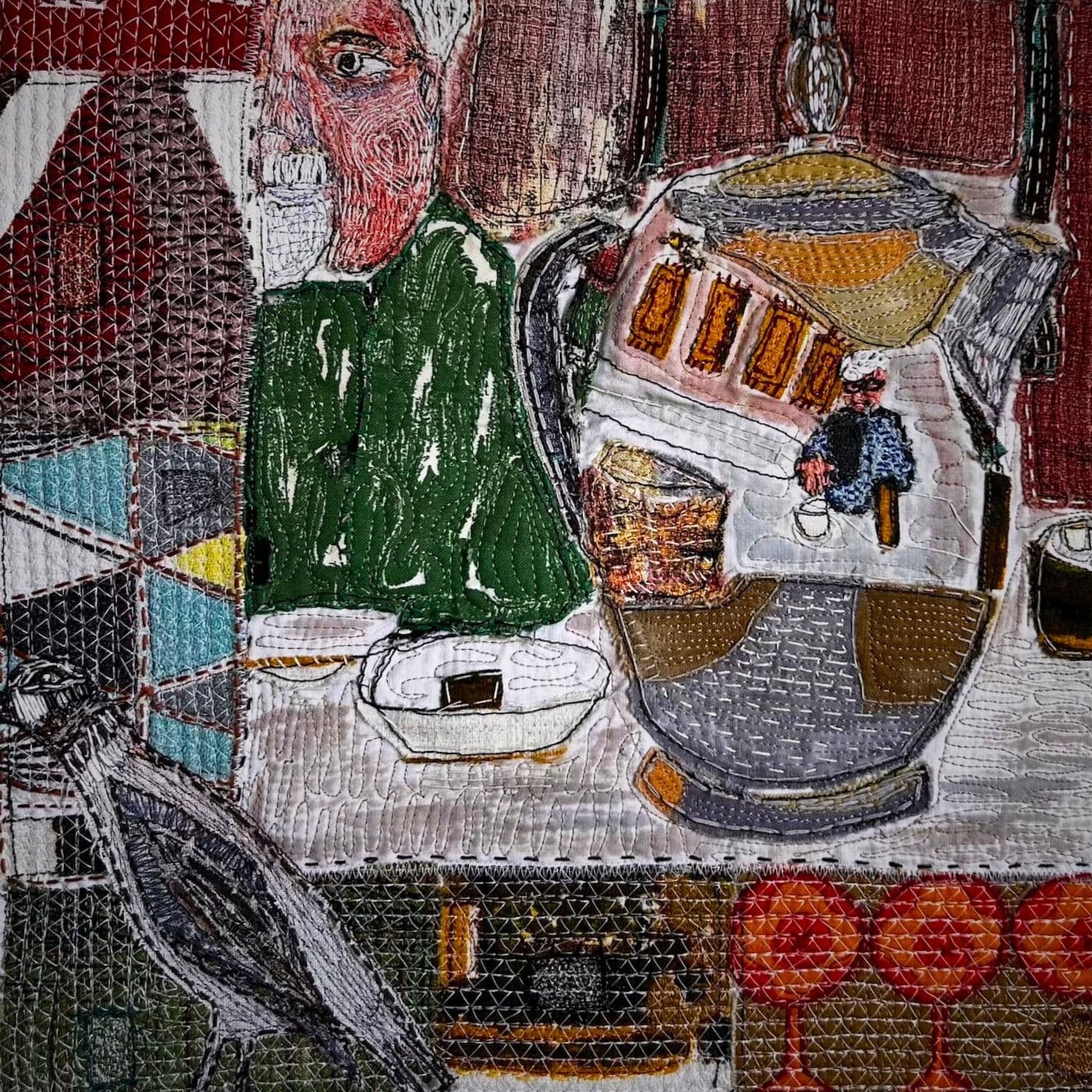
Fine art background
Anne Kelly: I’ve always been a maker, even from an early age, when I was influenced by my Canadian grandmother who was a wonderful needleworker.
I trained as a fine artist in Canada, but it was visiting my British grandmother in London that first drew me to the UK. I moved here in the early 80s to continue my training at Goldsmiths in London and to start a career in teaching that would work around family life.
Mixed media work was part of my training, and I became interested in finding ways to combine stitch with photographic and printmaking processes. I turned to my garden for inspiration, and this is when the symbiotic relationship between image and stitch first began.
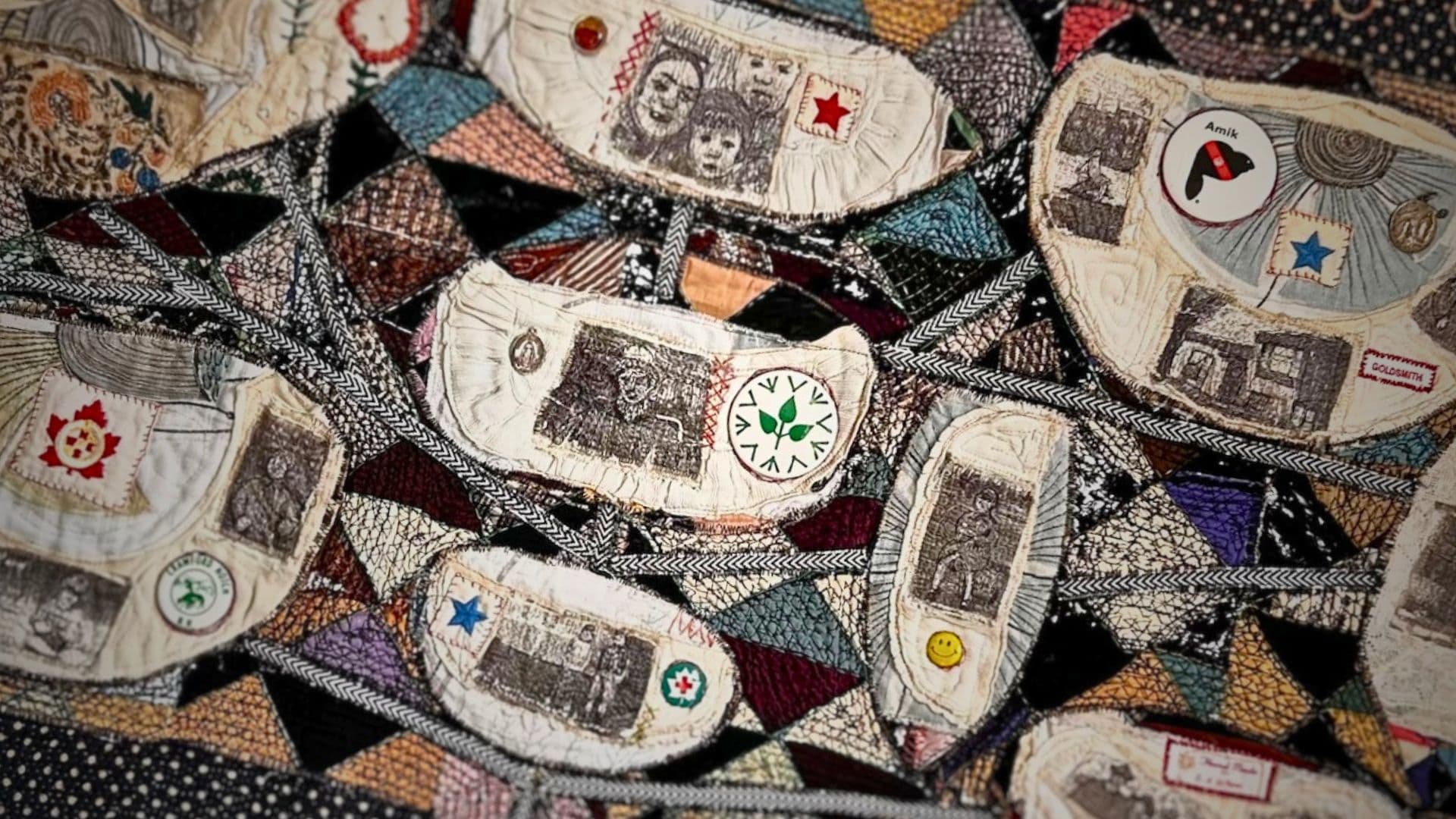
Everyday ephemera
I’m interested in everyday things. We all have so much fabric and paper ephemera surrounding us. I also take lots of photographs and collect things like tickets and leaflets when I travel. It can be a lot to sort through when I’m looking for items to use in my collages, and I like to choose carefully.
Some ephemera can be quite valuable and fragile, especially old photos. So, instead of directly stitching on these cherished items, I’ll make a fabric pocket from white or cream organza. I stitch the pocket to the background layer and slip the item inside the pocket.
Other times, I’ll transfer the images of delicate ephemera onto T-shirt transfer paper or pretreated fabric that can go through a photocopier or printer.
I use a very wide variety of ephemera, and I enjoy the challenge of figuring out how to put them all together. For example, I made a series of Park Walk books for a solo exhibition at the Ruthin Crafts Centre. I used old maps, legal documents and the type of scrim used in hat making.
“I am a great believer in using everyday materials and techniques.”
Anne Kelly, Textile artist
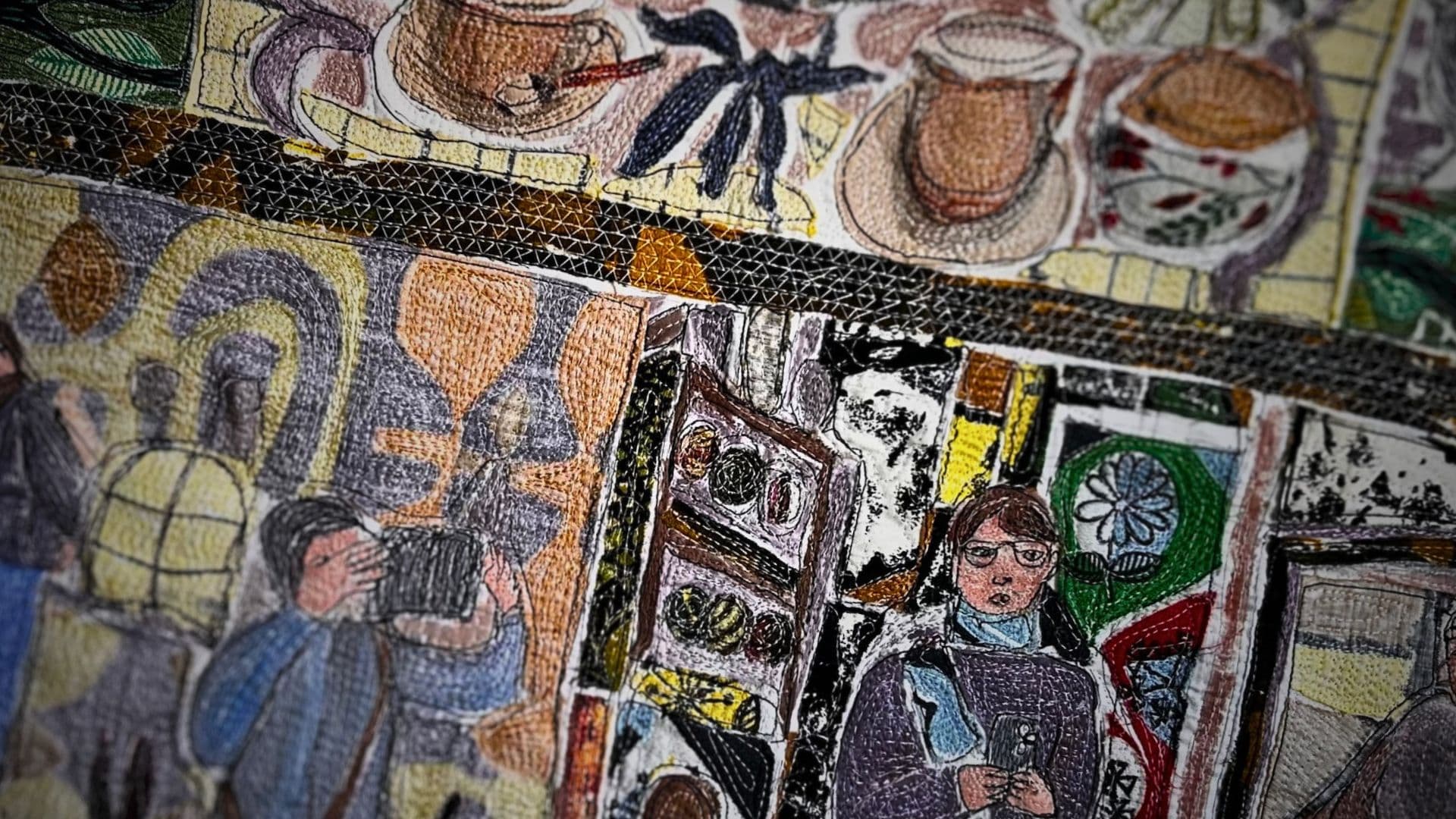
Loving print
There’s always an element of printmaking in my work. I just love the way that print works on fabric. It’s very different from printing on paper, but the ink or paint takes so well on fabric. Sometimes my printing is quite subtle, but I think it really enhances my textile art.
I use quite a few printing methods, including screen printing, block printing, transfer printing and digital printing. It just depends on what I’m doing.
The secret is to keep everything as open-ended as possible and I always work on more than one piece at a time. Using a baking analogy, if you’ve got all the ingredients out, you may as well make more than one cake. I think if you’re working on more than one creation at a time, you’re more likely to be happy and enjoy it when something comes through.
“Working on several collages at a time frees me up, as I’m not investing everything into trying to create the one perfect piece.”
Anne Kelly, Textile artist
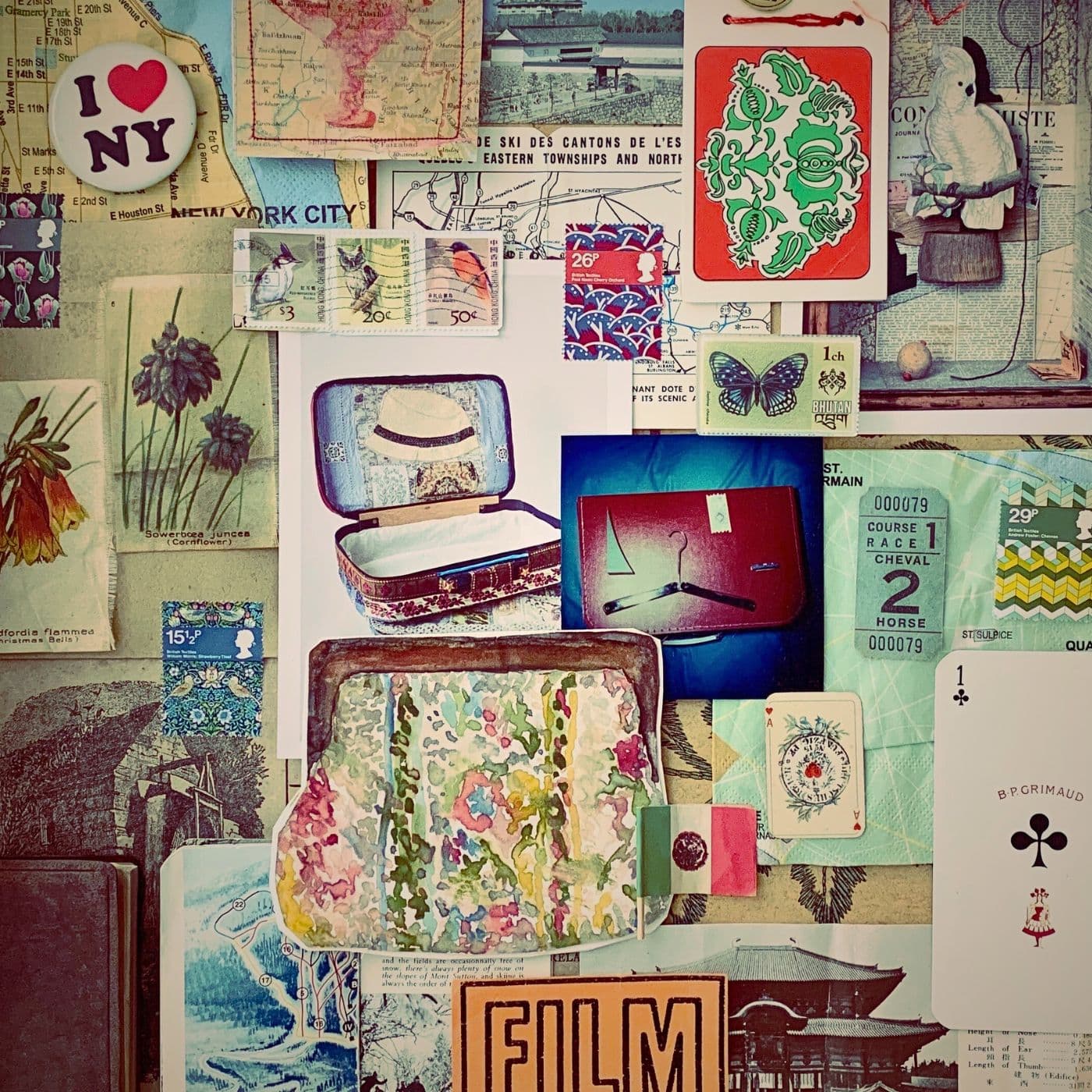
Inspiration boards
I’ll use sketchbooks and photography to research my themes. Drawing and keeping sketchbooks is an important part of my practice, and I refer to them frequently when working on a new project.
I always tell my students to have a sketchbook to hand, but they shouldn’t have to feel they have to use it in any particular way. I use mine as scrapbooks and pinboards. But they should use them as they see fit.
I also use inspiration boards, similar to the mood boards used in interior design. Seemingly disparate elements are combined, going on to inspire a new series of work.
Inspiration boards are an invaluable resource. I have been using them for many years to reference themes when creating new work. Depending on the project, I’ll use pinboards, cards or sketchbook pages for my inspiration boards. The main thing is they must be accessible in my workspace.
I often start with my photograph collection, adding motifs, found paper materials and drawings inspired by vintage natural history books. I bring them together using stitch and embellishment.
“My inspiration boards influence the direction of my work – but I’m not wedded to them, as the work may change as it evolves and progresses.”
Anne Kelly, Textile artist
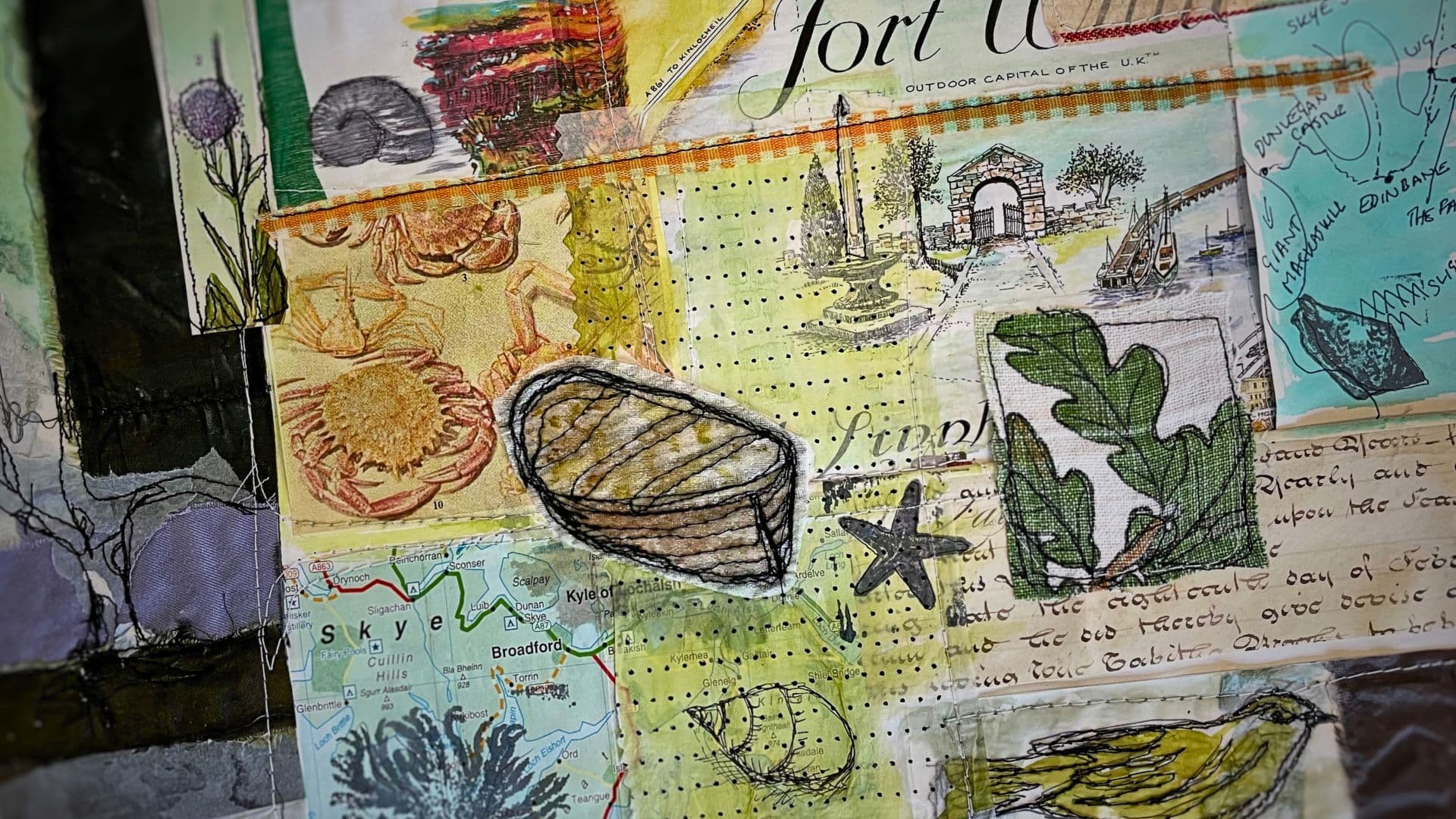
Isle of Skye reflections
I remember creating an inspiration board after a teaching and travelling visit to the Isle of Skye in Scotland. It allowed me to spend time reflecting on my travels, and I was able to combine collected papers and ephemera together in one place.
I had everything from maps to Tunnock’s chocolate bar wrappers. I also looked through my collections of paper and textile scraps for colours and fragments that would work well with the project.
“Starting with the idea of landscape, I used the board to connect disparate elements and combine them, in order to make new work.”
Anne Kelly, Textile artist
I selected a variety of weights, textures and thicknesses of paper and textiles, from tissue paper and organza, to handmade paper and wool.
That inspiration board led to a wide range of works, and it will continue to inspire further explorations referencing this theme.
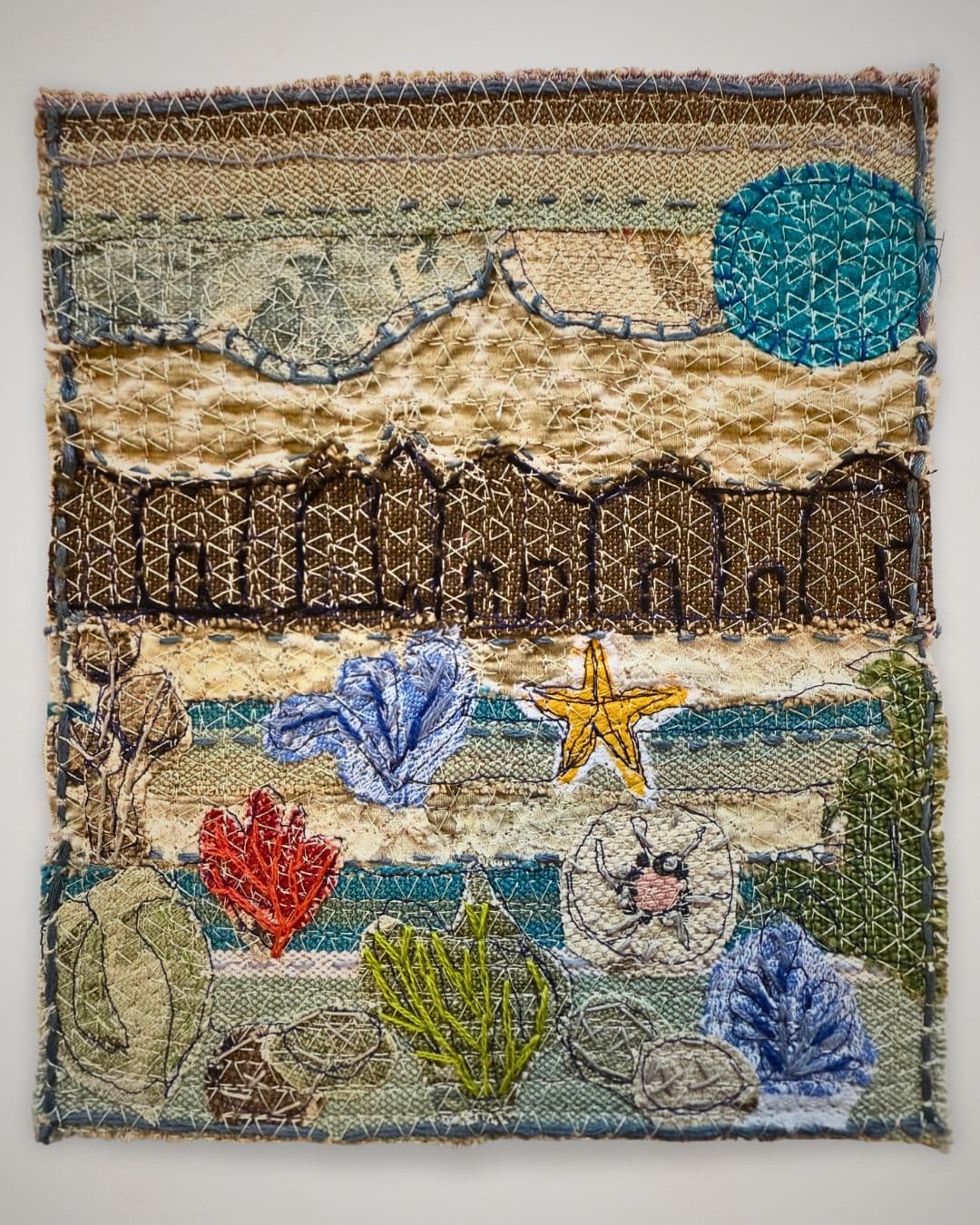
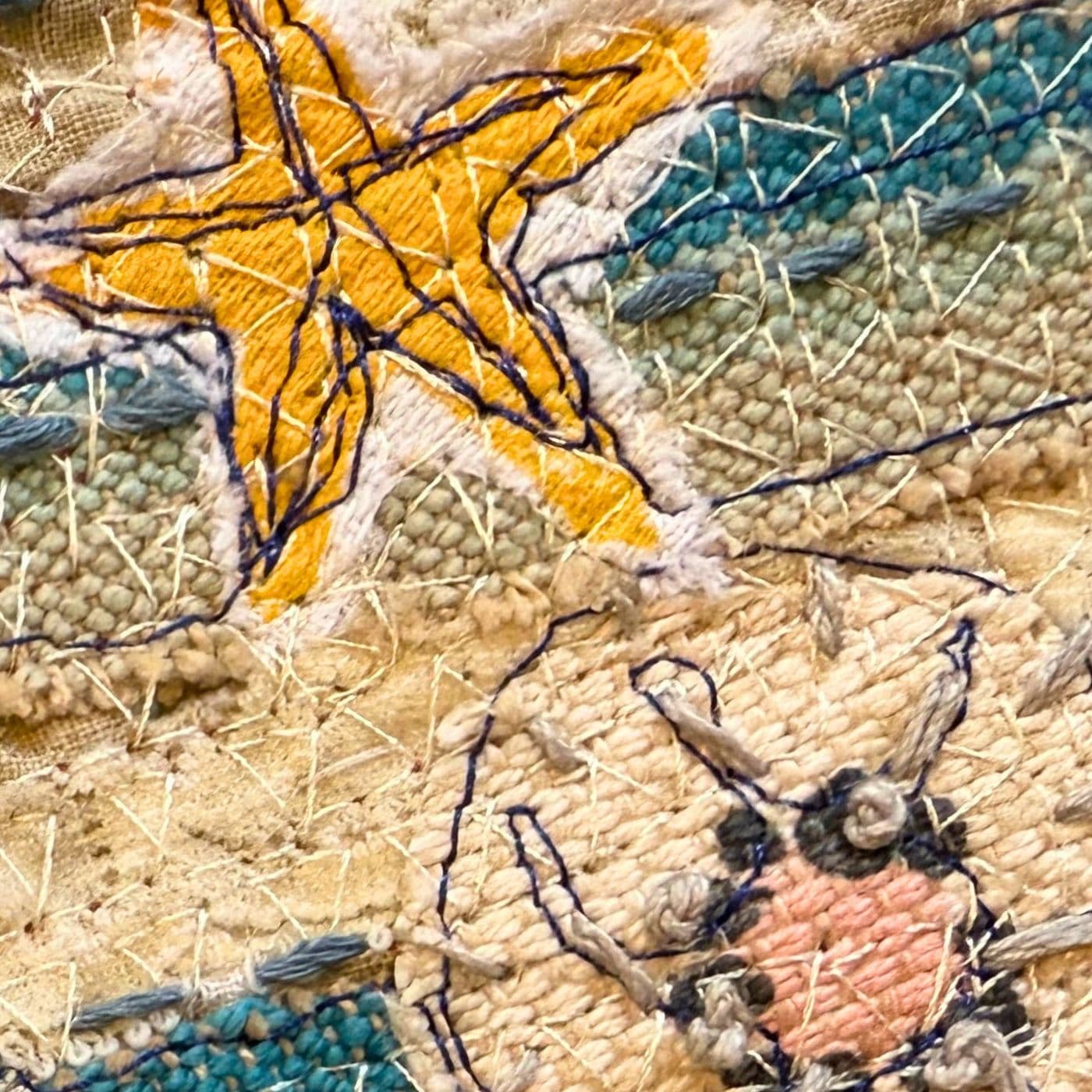
Layers of detail
When creating my textile collages, I like to start with a strong background fabric such as calico or canvas. I layer this panel with fabrics that match the subject matter. The panels vary according to the size and shape of the artwork I’m creating.
I consider the elements that will make up the surface, using sketchbooks, drawings, templates and photographs to determine the final look of the artwork.
I join everything together using a variety of stitches and appliquéd fabric. Generally, I finish with free motion embroidery and some hand stitching. I back my work using vintage fabric if it’s being hung without a frame.
I have an outdoor garden shed that I renovated for my studio. It’s not very big, so I always say to people it’s not the size of your space that counts, it’s what you do. I love being able to go there to work and then just shut the door and leave my mess until next time.
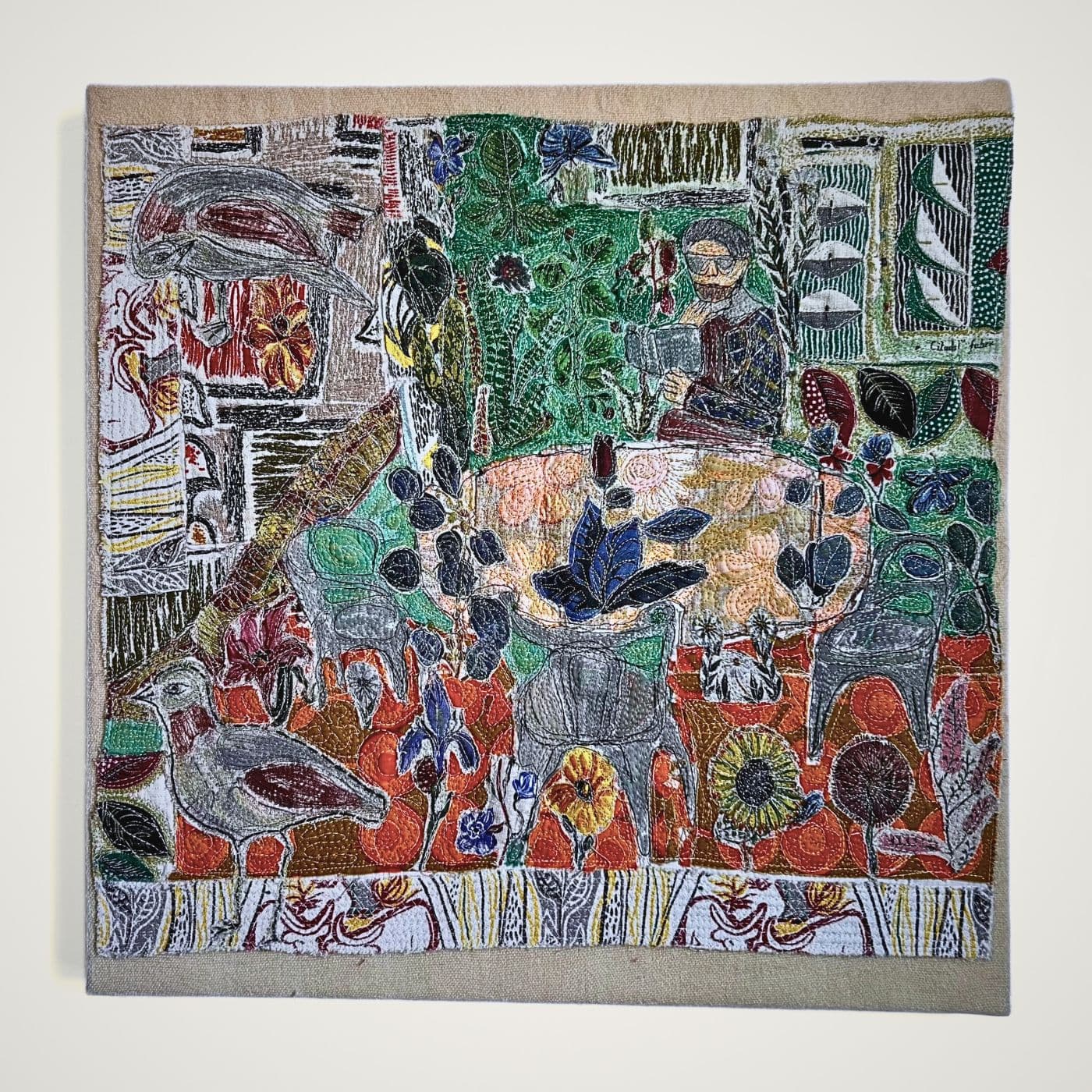
Drawing with stitch
For me, stitching is a form of drawing. I use hand and machine stitching, collage and simple printmaking techniques to merge my selected materials. The stitching acts as a web to bind the components together.
I use a variety of stitch techniques, both hand and machine. I’m known for using a repetitive edging stitch on an old Bernina to join layers of fabric together and create a netting effect over the surface.
“I entrap elements of the world in my textiles, then draw over them, making a new piece of tapestry-like fabric.”
Anne Kelly, Textile artist
I also use free-motion embroidery, particularly in my recent portrait series. For the hand embroidery, I favour simple stitches like running stitch, back stitch, blanket stitch and french knots.
The work I make fits into both the traditional and contemporary genres. While appearing traditional, I use a variety of techniques in a contemporary way. The naïve references and influence of the natural world make it relevant and topical.
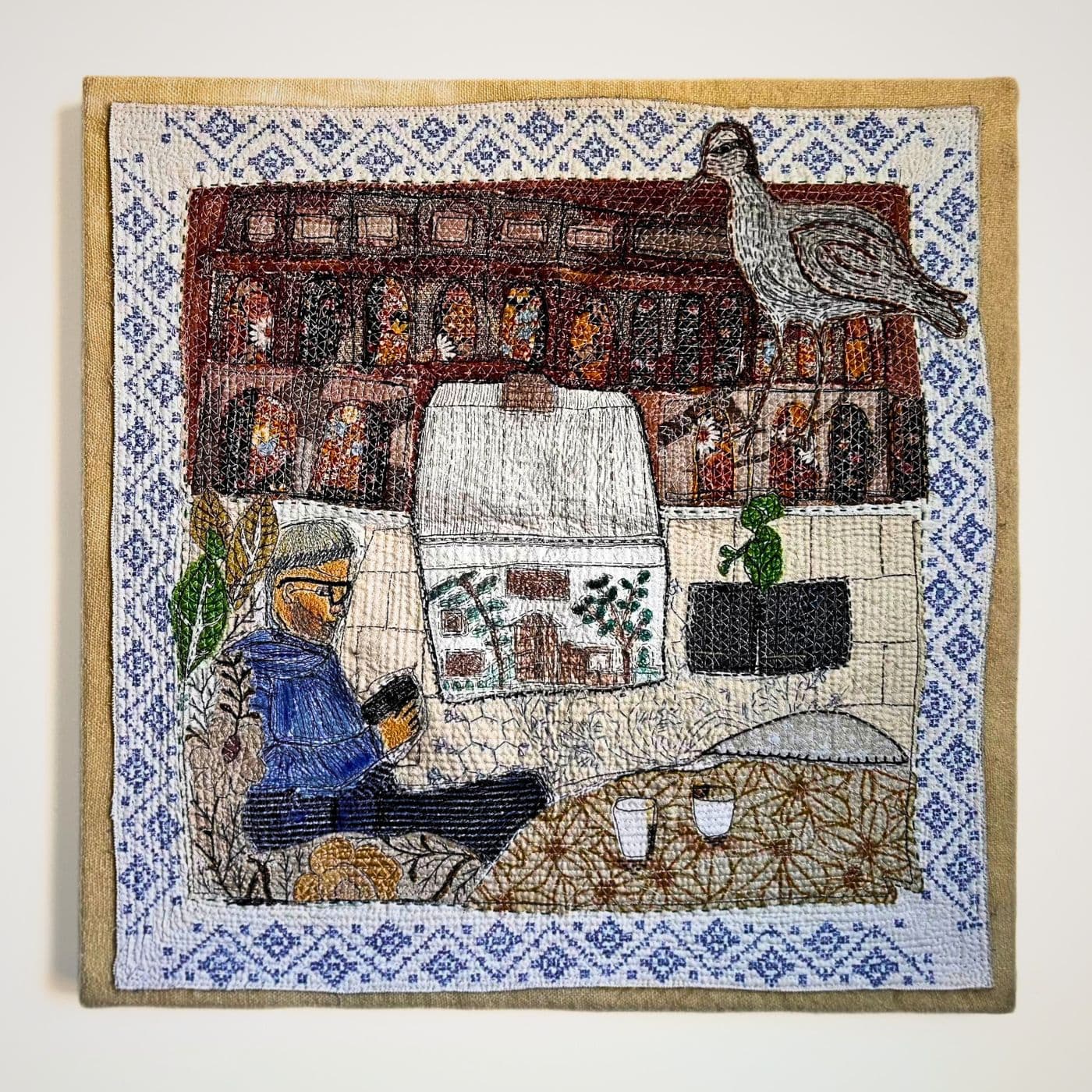
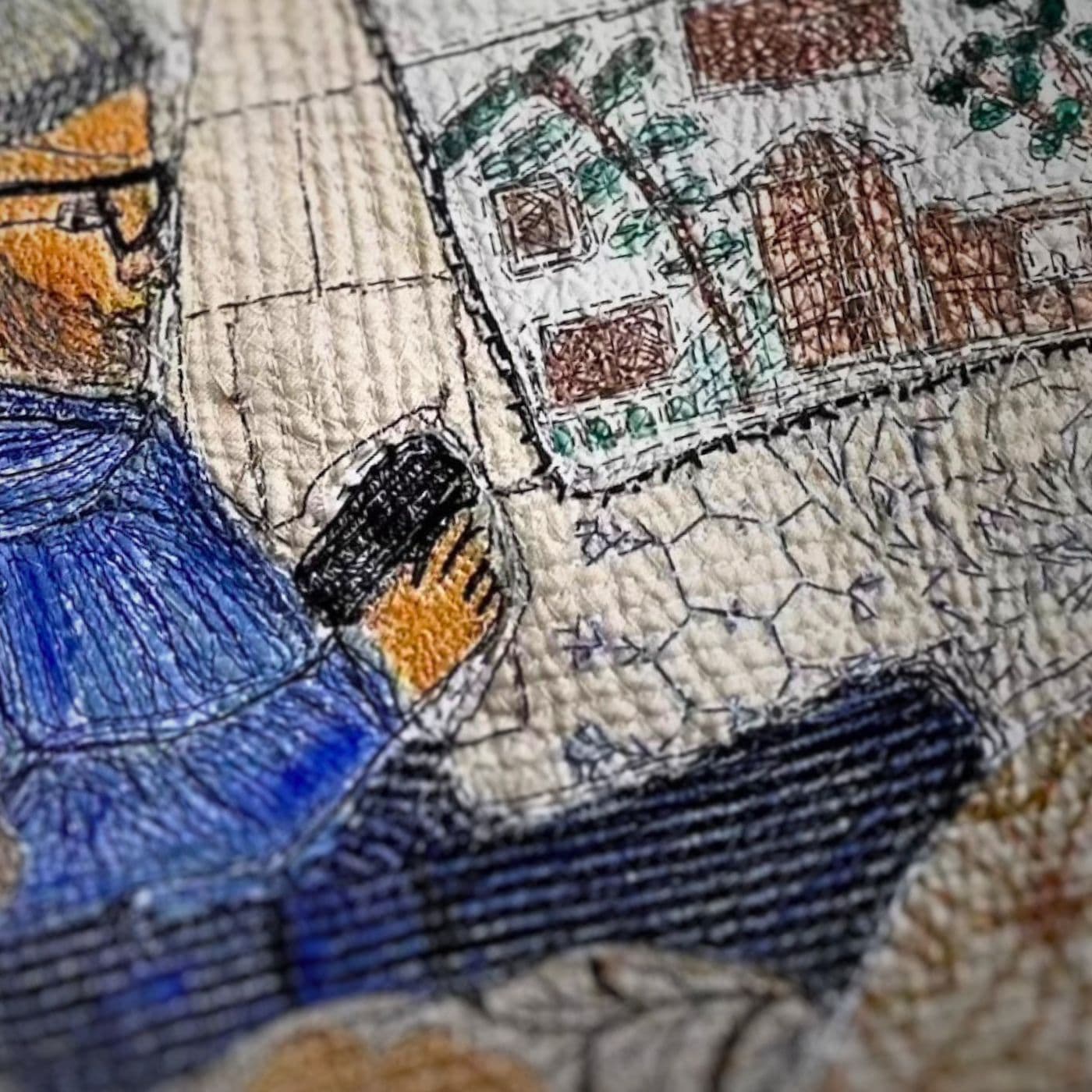
Telling stories
There’s always a story to be found in my work. For example, my series Friends and Family series looks at family and friends’ environments and passions.
Paul in the Garden showcases how my husband likes to read in the garden. It was inspired by a photo of him surrounded by plants. I used vintage materials, machine embroidery and hand stitch. The work is backed with a piece of linen and mounted on canvas for display.
I’ll also stitch stories from my own life. Resting and Jenny’s Owl came to life after I had a bout of flu. I wanted to recreate the view from my bed. My friend, Jenny, made the owl as a present and it is displayed as a focal point on my shelves. The artwork also features vintage materials, machine embroidery and hand stitch.
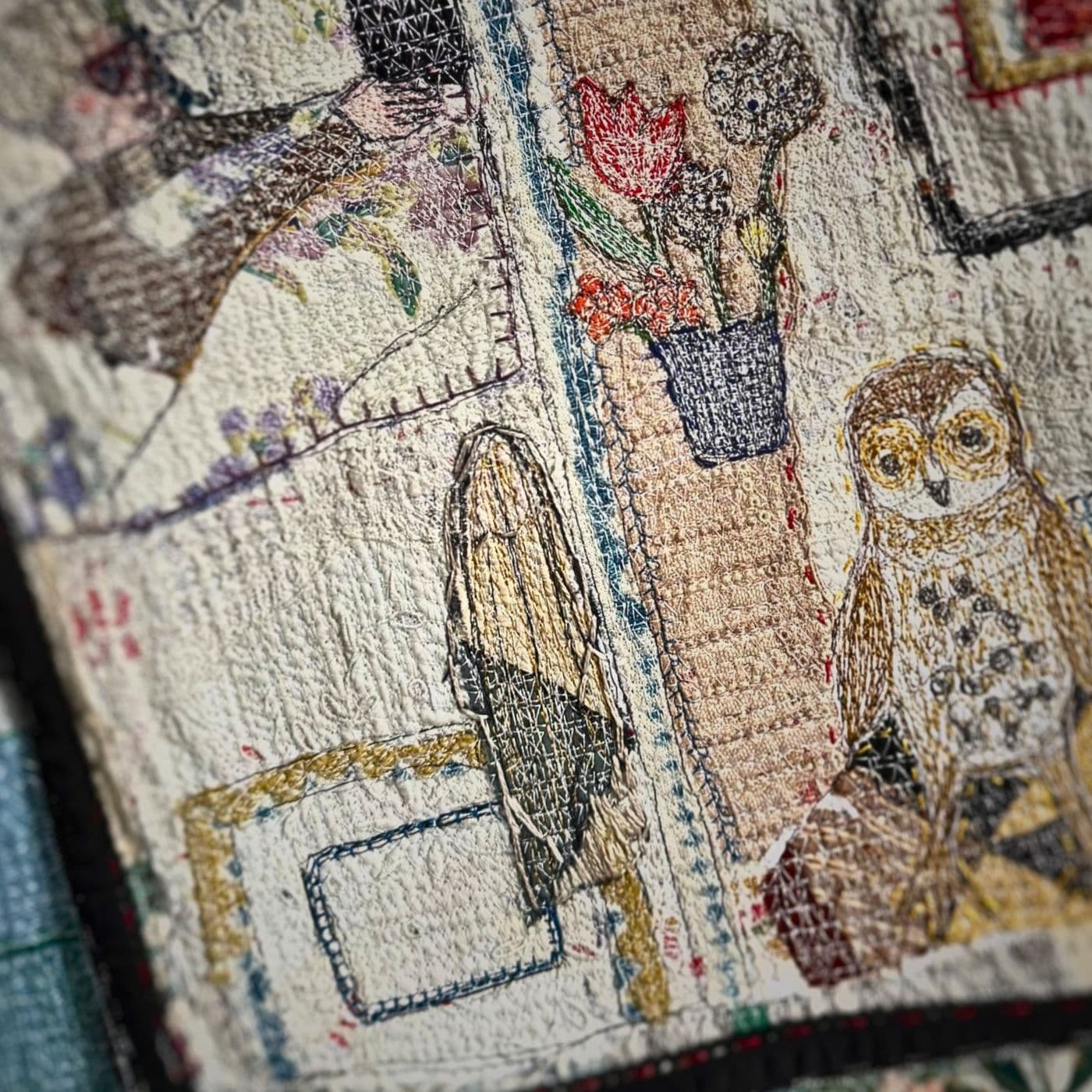
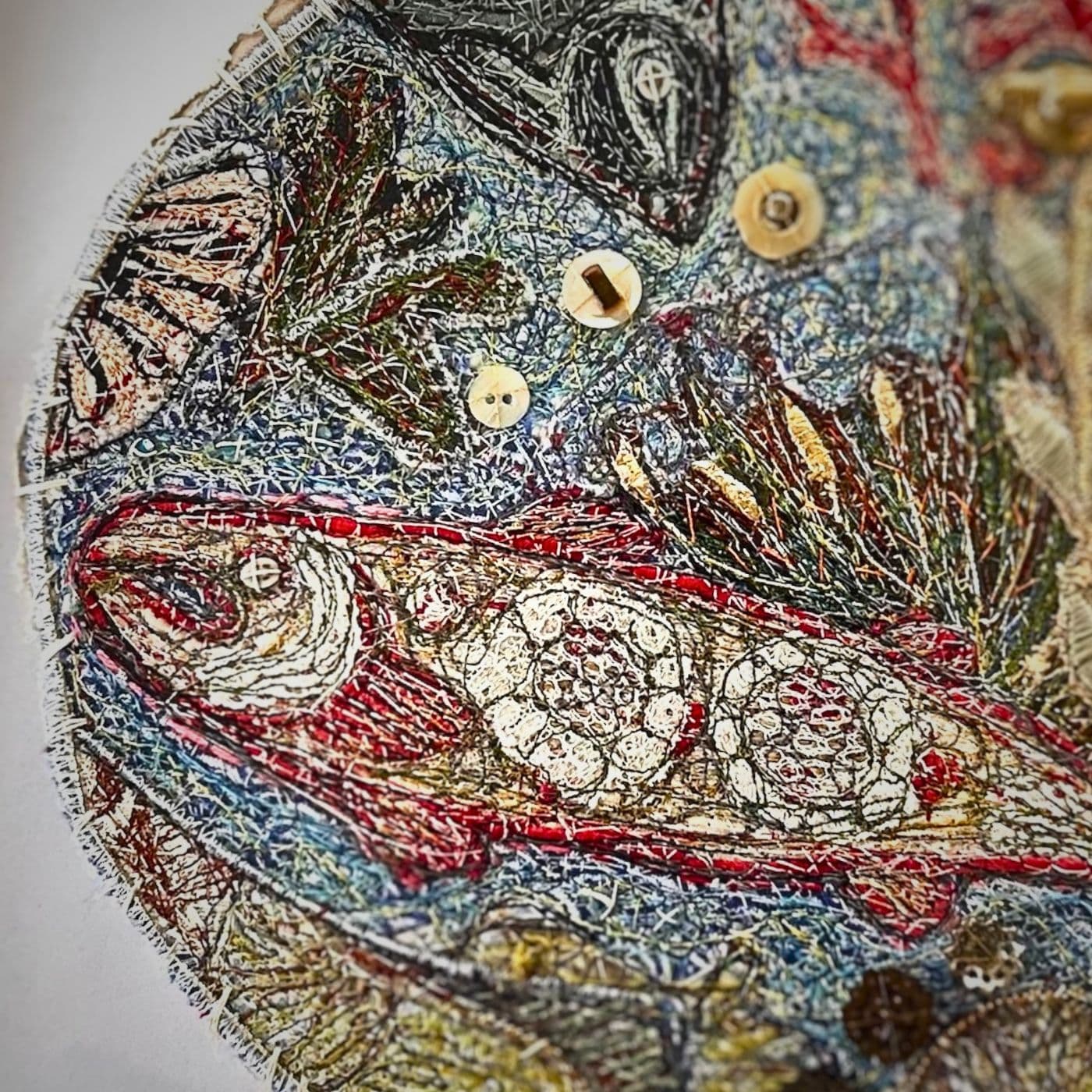
A seaside Stitch Club workshop
The artwork Small World was inspired by my larger work called Undersea. I wanted to take a closer look at the details of the sea, creating a jewel-like focus.
I used machine embroidery, hand stitch, and textile collage including buttons and metal charms. I then mounted the work onto a hoop and sewed it into the frame.
I pursue a similar creative project in my Stitch Club workshop where members create sea-inspired textile collages using existing materials found in their stash. I think it’s an enduring and accessible theme for many, and I’m excited to show members new ways to combine materials.
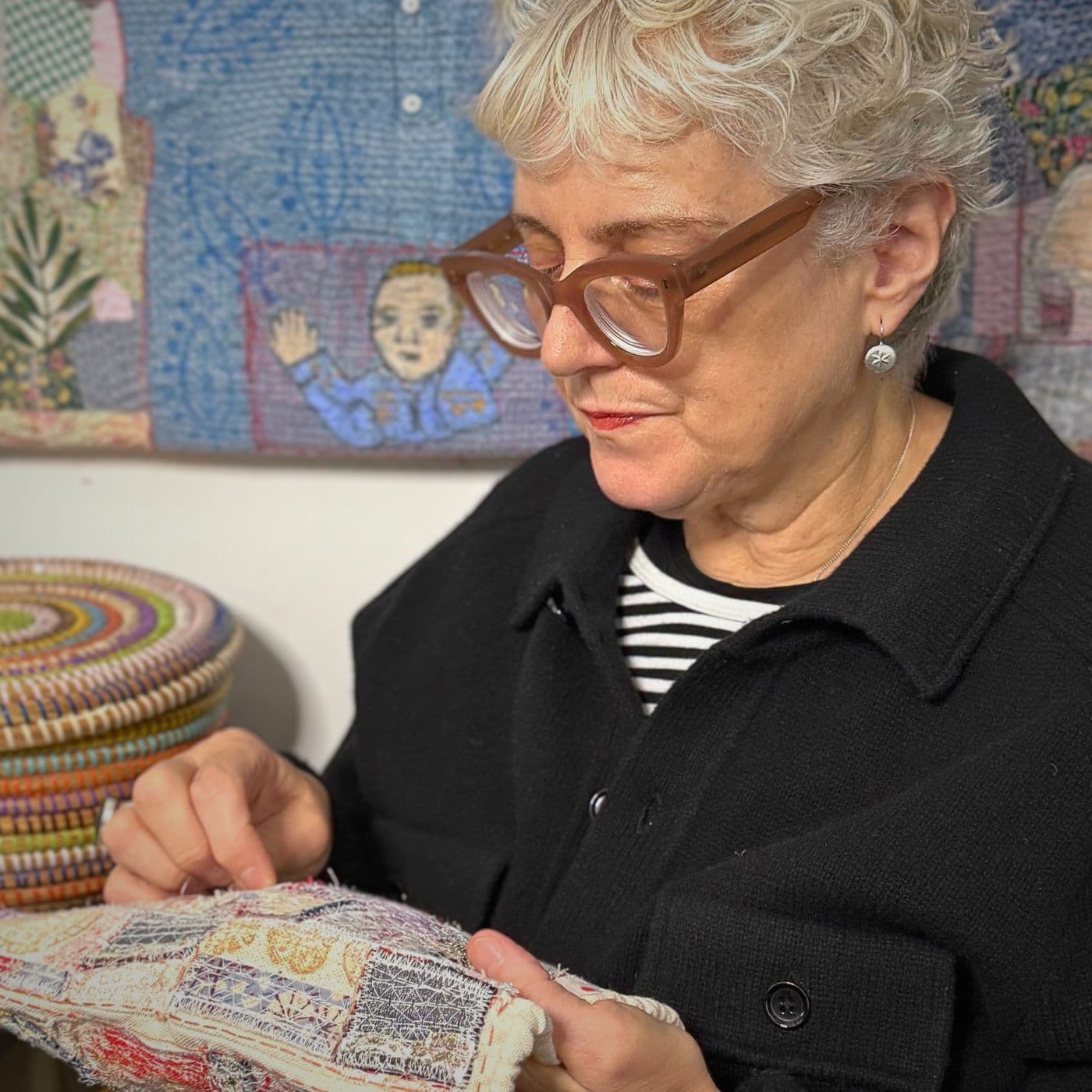
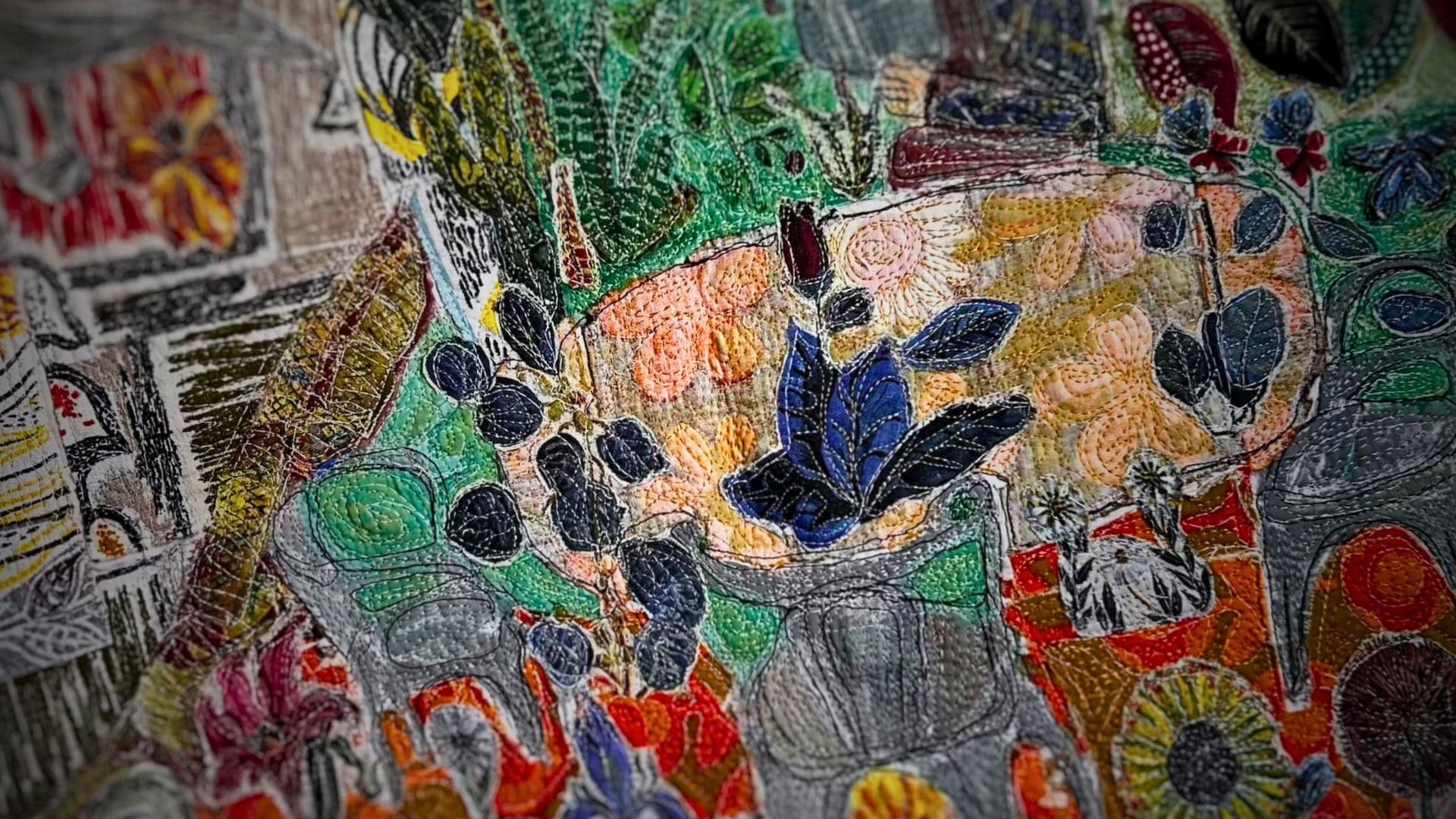
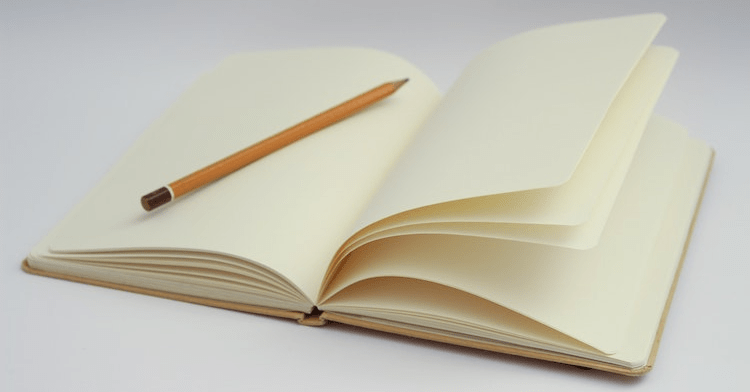
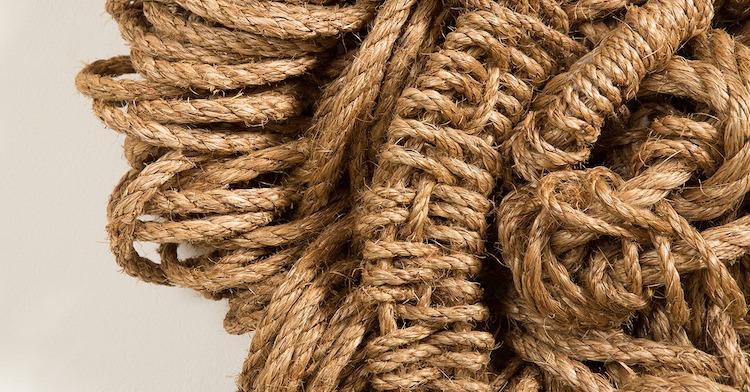
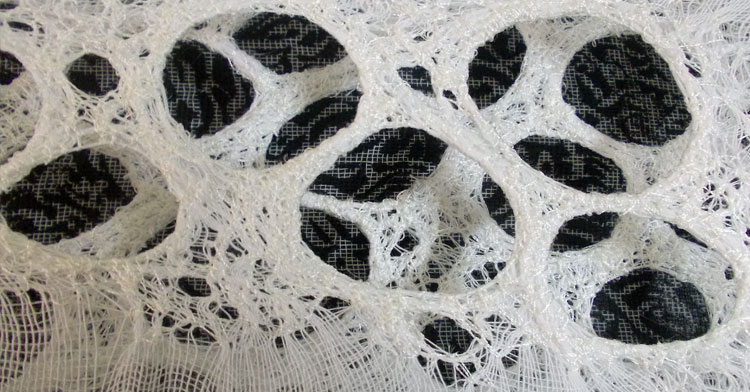
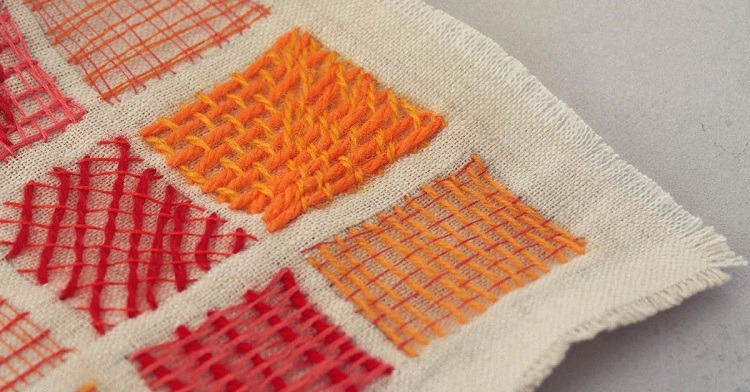

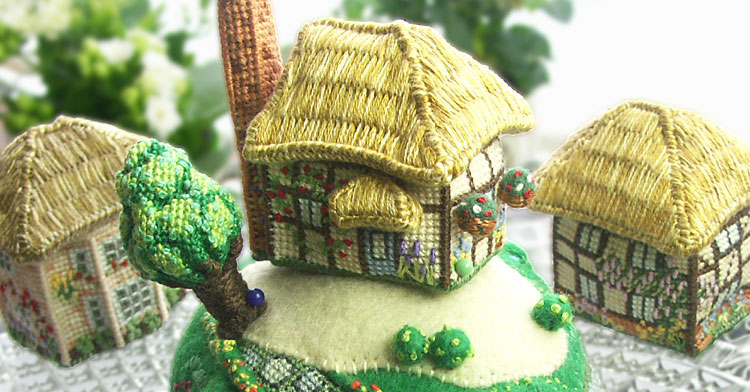
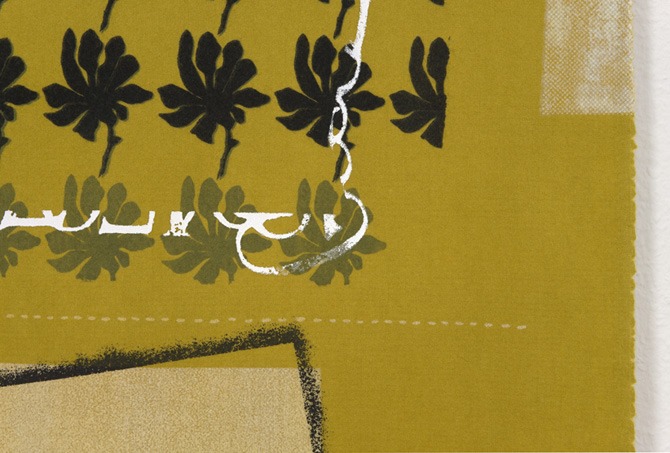
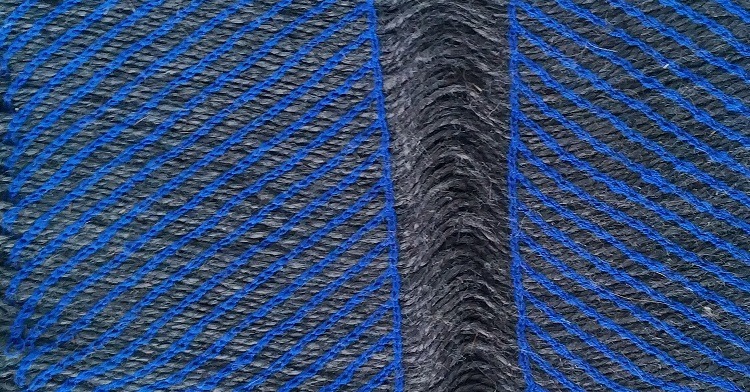
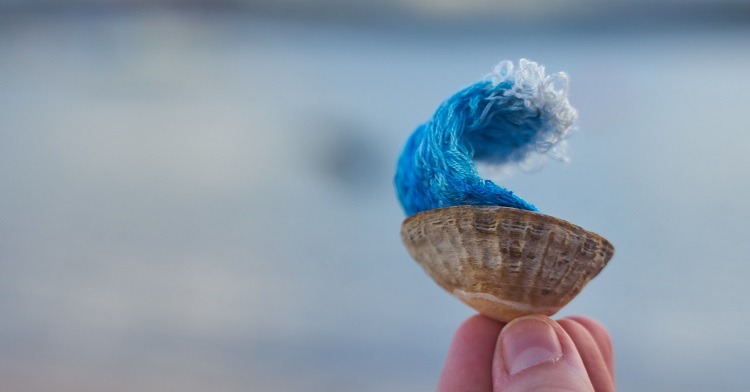

6 comments
cre8iveSkill
“Anne Kelly’s work is truly inspiring! Her ability to transform everyday influences into such rich and meaningful textile art is remarkable. The textures and storytelling in her pieces are captivating.
Siân Goff
Thank you so much! We wholeheartedly agree.
Judith Davidson
A beautiful article about Ann Kelley’s work. Thanks for the great close-ups of her technique.
Siân Goff
You are so welcome. Thanks for your comment.
Anbe
Beautiful write up about Anne Kelly. Very Inspiring and so colorful and fun to see!!!
Siân Goff
We’re so pleased you enjoyed it! Her work is marvelous isn’t it? Thanks for your comment.